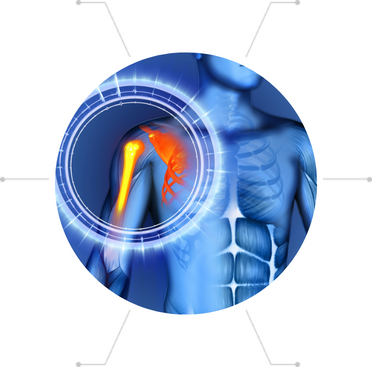Menu
- AyurVAID Pharmacy
Frozen shoulder, also known as adhesive capsulitis, is a condition that affects the shoulder joint, causing pain and stiffness. It typically develops gradually over time and progresses through stages. The disease is characterized by the thickening and tightening of the capsule, a connective tissue surrounding the shoulder joint. In Ayurveda, the frozen shoulder is known as Apabahuka caused by an imbalance of the Vata dosha. This leads to a disturbance in the blood supply and hampering functions within the shoulder joint.
At AyurVAID, we aim to improve the condition and arrest further disease progression. Our Ayurveda treatment for frozen shoulder protocols focus on internal medicines along with physical, and occupational therapies that strengthen and stretch muscles and improve joint functions. Panchakarma therapies can help to retain function and range of motion.


AyurVAID’s classical Ayurveda treatment protocols address the root cause of diseases. After assessing symptoms, and history, and understanding the patient and disease, a specific treatment protocol is designed. Ayurveda Frozen Shoulder Treatment at AyurVAID aims to reduce pain and inflammation, arrest further progression, and improve quality of life by treating the root cause which is often uncontrolled diabetes. Ayurveda experts also advise on ergonomics, nutrition, and lifestyle changes to manage a Frozen Shoulder.


Bengaluru – Domlur Bengaluru – Aster CMI, Hebbal Bengaluru – HRBR Layout Bengaluru – Sri Shankara, Basavangudi Bengaluru – Bannerghatta Road Bengaluru – ArekereDelhi – New DelhiKochi – Kadavanthara Uttarakhand-Kalmatia, AlmoraChennai – Greams Road Chennai – Vanagaram Chennai – Kotturpuram Hyderabad – Somajiguda
Ayurveda Parasurgery Autoimmune Disorders Blood Disorders Cardiology Dermatology Endocrinology Ear-Nose Throat-Mouth Elder-Care Gastrointestinal Gynaecology Integrative Oncology Infectious-Diseases Liver-Hepato-Biliary-Care Mental Health and De-addiction Male-Reproductive-Disorders Nephrology Neurological-Disorders Orthopaedic Disorders Ophthalmology Obstetrics-Integrative Preventive-Health-Wellbeing Pulmonology Pediatric-Development-Disorder Sleep-Disorders
Any use of this site constitutes your agreement to the Terms and Conditions, Privacy Policy and Cancellation and Refund Policy
©2025 Apollo AyurVAID Hospitals. All rights reserved.
Popular Searches: DiseasesTreatmentsDoctorsHospitalsWhole person careRefer a patientInsurance